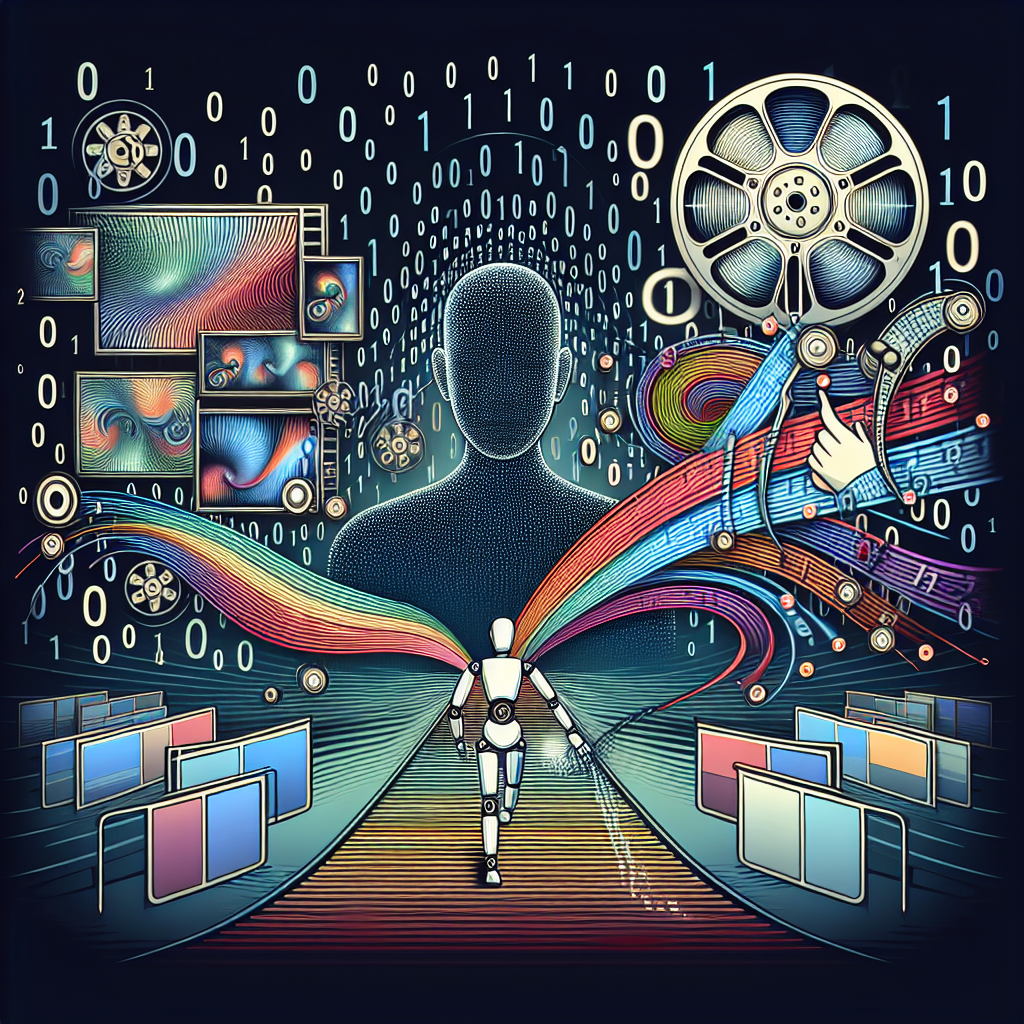In recent years, generative artificial intelligence (AI) has emerged as a powerful tool for creating personalized entertainment experiences. By harnessing the capabilities of generative AI, content creators can deliver unique and engaging experiences tailored to the preferences of individual users. From video games to music to movies, generative AI is revolutionizing the way we consume entertainment.
Generative AI refers to a subset of AI technologies that are capable of generating new content based on existing data or patterns. Unlike traditional AI systems, which are designed to perform specific tasks or make decisions based on predefined rules, generative AI has the ability to create new content that is original and unique.
One of the key benefits of generative AI in the entertainment industry is its ability to personalize content for individual users. By analyzing user data and preferences, generative AI algorithms can create customized experiences that are tailored to the specific tastes of each user. This level of personalization can enhance user engagement and satisfaction, leading to increased retention and loyalty.
Generative AI is being used in a variety of ways to enhance entertainment experiences. In the world of video games, for example, generative AI can be used to create dynamic and adaptive game worlds that respond to the actions and preferences of players. This can result in more immersive and engaging gameplay experiences that keep players coming back for more.
In the music industry, generative AI is being used to create personalized playlists and recommendations for music fans. By analyzing listening habits and preferences, generative AI algorithms can generate playlists that are tailored to the individual tastes of each user. This can help music fans discover new artists and genres that they may not have otherwise encountered.
In the film and television industry, generative AI is being used to create personalized content recommendations and marketing campaigns. By analyzing viewing habits and preferences, generative AI algorithms can recommend movies and TV shows that are likely to resonate with individual viewers. This can help content creators target their marketing efforts more effectively and drive engagement with their content.
Overall, generative AI is revolutionizing the entertainment industry by enabling personalized experiences that are tailored to the preferences of individual users. By harnessing the power of generative AI, content creators can deliver unique and engaging experiences that keep users coming back for more.
FAQs
Q: How does generative AI work?
A: Generative AI works by analyzing existing data or patterns and using this information to generate new content. By leveraging algorithms and machine learning techniques, generative AI can create original and unique content that is tailored to the preferences of individual users.
Q: What are some examples of generative AI in entertainment?
A: Generative AI is being used in a variety of ways in the entertainment industry. For example, in video games, generative AI can create dynamic and adaptive game worlds that respond to the actions and preferences of players. In the music industry, generative AI is used to create personalized playlists and recommendations for music fans. In film and television, generative AI is used to create personalized content recommendations and marketing campaigns.
Q: How does generative AI benefit content creators?
A: Generative AI can benefit content creators by enabling them to deliver personalized experiences that are tailored to the preferences of individual users. This can lead to increased user engagement and satisfaction, as well as improved retention and loyalty. Generative AI can also help content creators target their marketing efforts more effectively and drive engagement with their content.
Q: What are some potential challenges of using generative AI in entertainment?
A: While generative AI offers many benefits, there are also potential challenges to consider. For example, there may be concerns about privacy and data security when using generative AI to analyze user data. Additionally, there may be challenges in ensuring that the content generated by generative AI is of high quality and meets the expectations of users.
Q: How is generative AI shaping the future of entertainment?
A: Generative AI is shaping the future of entertainment by enabling personalized experiences that are tailored to the preferences of individual users. By leveraging the capabilities of generative AI, content creators can deliver unique and engaging experiences that keep users coming back for more. As generative AI continues to evolve, we can expect to see even more innovative and personalized entertainment experiences in the years to come.

